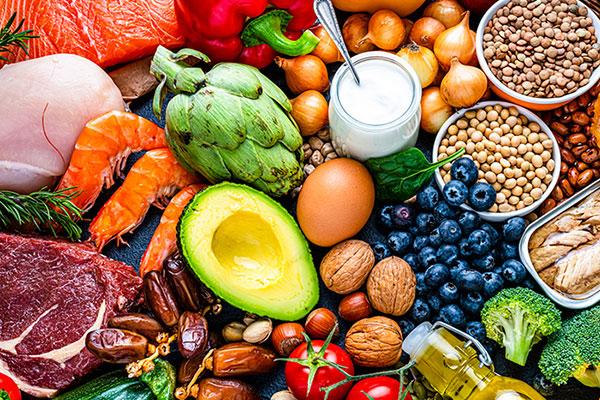
PWN Trending Aug 11 2025
Diet and Nutrition: The Complete Guide to Eating for Optimal Health
Your diet is the foundation of your health. The right nutrition fuels your body, sharpens your mind, and protects you from chronic illness. In this guide, we’ll break down the science of diet and nutrition, explore the best eating patterns, and give you practical steps for building lifelong healthy habits.
Why Diet and Nutrition Matter
The phrase “you are what you eat” has a scientific backbone. Your daily food choices affect:
✅ Energy levels and productivity
✅ Heart health and cholesterol levels
✅ Immune function and disease prevention
✅ Blood sugar regulation
✅ Weight management
✅ Mental clarity and mood
✅ Longevity and quality of life
Poor nutrition is linked to obesity, diabetes, cardiovascular disease, digestive disorders, and even certain cancers.
The Building Blocks of a Healthy Diet
1. Macronutrients
Nutrients you need in larger amounts:
Carbohydrates – Choose complex carbs like whole grains, fruits, vegetables, and legumes for steady energy and fiber.
Proteins – Support muscle repair, immune function, and hormone production. Sources: lean meats, fish, eggs, dairy, legumes, tofu, nuts.
Fats – Essential for brain health, hormones, and vitamin absorption. Prioritize healthy fats like olive oil, avocado, nuts, seeds, and omega-3-rich fish.
2. Micronutrients
Vitamins and minerals are needed in smaller amounts but are crucial for:
Bone health (Calcium, Vitamin D)
Immune support (Vitamin C, Zinc)
Nervous system function (Vitamin B12, Magnesium)
Eat a rainbow of fruits, vegetables, nuts, seeds, and whole foods to get a variety of micronutrients.
3. Fiber
Aids digestion, supports gut health, and helps control blood sugar. Best sources: vegetables, fruits, beans, whole grains, and seeds.
4. Hydration
Water powers every system in your body. Aim for 8 cups daily and more if you’re active or in hot climates.
Popular Healthy Diet Patterns
Mediterranean Diet – High in vegetables, fruits, whole grains, fish, and olive oil; proven heart-healthy.
Plant-Based Diet – Whole plant foods with limited or no animal products; reduces chronic disease risk.
Low-Carb / Keto Diet – Restricts carbs in favor of fats and proteins; may support weight loss and blood sugar control.
DASH Diet – Focuses on lowering blood pressure through fruits, vegetables, lean proteins, and reduced sodium.
Practical Nutrition Tips for Daily Life
🥗 Fill half your plate with vegetables and fruits.
🍞 Choose whole grains over refined carbs.
🥩 Include lean protein in each meal.
🧂 Limit added sugars and sodium.
🥙 Prep healthy meals ahead of time to avoid fast food traps.
📏 Watch portion sizes to maintain a healthy weight.
Nutrition for Disease Prevention
Heart Disease – Increase omega-3 fats, fiber, and antioxidants.
Diabetes – Eat low-glycemic index carbs, control portion sizes, and increase fiber.
Cancer Prevention – Focus on colorful, antioxidant-rich plant foods.
Cognitive Health – Consider the MIND Diet (Mediterranean + DASH) to protect brain function.
Emerging Research in Nutrition
Gut Microbiome Health – Diverse plant foods support beneficial gut bacteria.
Personalized Nutrition – DNA and metabolic testing may soon tailor diets to individual needs.
Intermittent Fasting – May improve blood sugar control and support healthy aging.
Final Word
Nutrition isn’t about fad diets — it’s about building sustainable eating habits. By focusing on whole, nutrient-dense foods and avoiding heavily processed options, you can boost energy, prevent disease, and improve quality of life.









